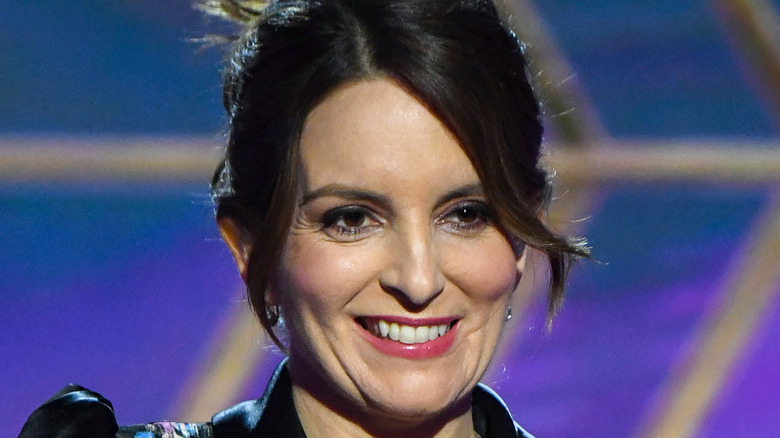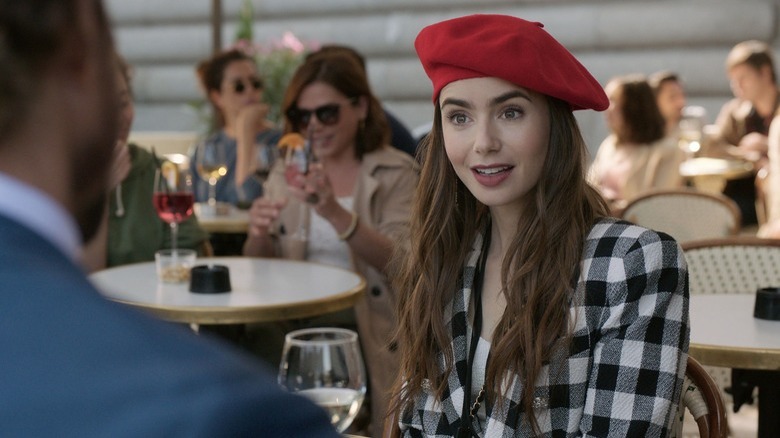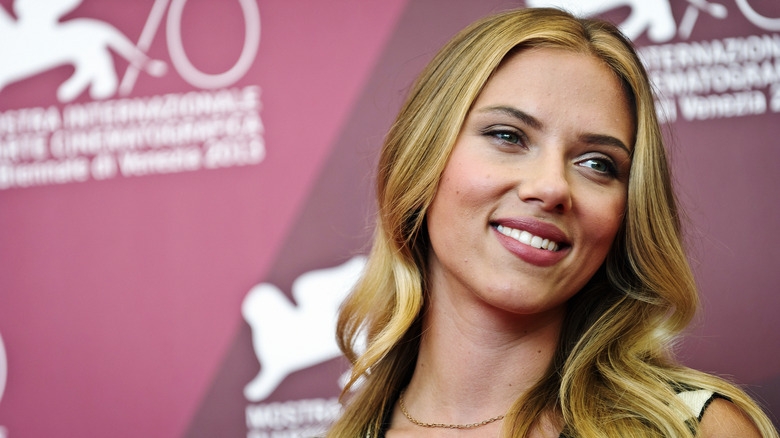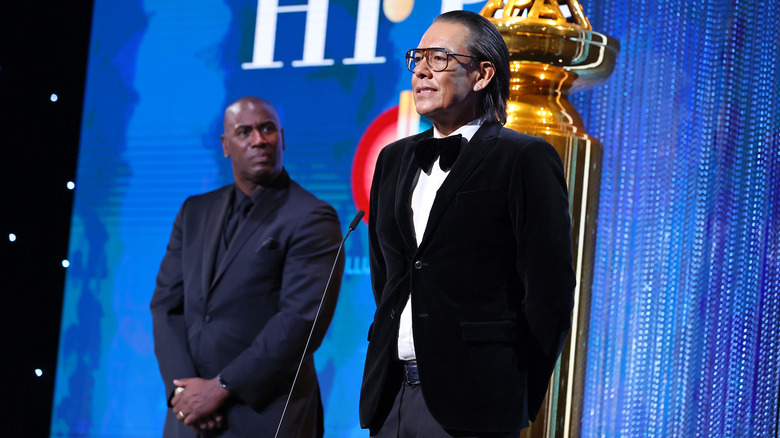The Golden Globes Are Coming Back To Disappoint You In 2023
A new year has dawned, resolutions have been made (and potentially already broken), mocktails are being ordered en masse for Dry January, and... for some reason, the Golden Globes are back to terrorize audiences. Despite causing controversy year after year — as well as being one of the most publicly drunk evenings in Hollywood each season — the Hollywood Foreign Press association has seen fit to revive the Golden Globes in 2023. Why? That's anyone's guess.
In case you haven't been paying attention, the Golden Globes have been courting a fair amount of controversy for the past few years... and no, it doesn't have anything to do with Ricky Gervais' hosting duties this time around. Between a clear lack of diversity in the HFPA, baffling nominations, and seedy goings-on behind the scenes, the Golden Globes weren't even televised in 2022 after some terrible publicity and a very weird bicoastal ceremony hosted by Tina Fey and Amy Poehler during the thick of the COVID-19 pandemic in 2021. So why are the Golden Globes back? Not sure, but, here's why they briefly disappeared in the first place... and why they probably won't be any different this time around.
The Golden Globes kicked off 2021 with accusations that ranged from racism to accepting bribes
In February of 2021, the Globes announced their nominees for the year... and were immediately hit with enormous backlash over two shows in particular. One show, "Emily in Paris," a brightly colored fever dream about a version of Paris that does not exist on this planet centered around television's most insufferable protagonist, received multiple nominations, including Best Comedy Series — Musical or Comedy. The other, "I May Destroy You," Mikaela Coel's searing and innovative series about a millennial writer overcoming serious trauma, received zero nods.
Even one of the writers for "Emily in Paris," Deborah Copaken, wrote a piece in The Guardian arguing that "I May Destroy You," not the show that keeps her employed, deserved a nomination instead. Unfortunately, the truth that came to light was much worse than a show simply being snubbed. Investigations by the Los Angeles Times that spring turned up two pretty damning things. First, the HFPA did not have any Black journalists as a part of its voting body. Second, the nominations for "Emily in Paris" were no accident; according to that same investigation, members of the HFPA were squired around Paris by the Paramount Network, gifted with a set visit and stays at the uber-expensive Peninsula Hotel. So, you know. Not a great look!
Celebrities united against the Golden Globes
After that initial controversy, the floodgates opened wide, and celebrities joined the fray of those criticizing the HFPA. Scarlett Johansson, Academy Award nominee and MCU star, said that questions from HFPA journalists "bordered on sexual harassment" and that she avoided speaking to them at press conferences. Tom Cruise, who is openly and totally fine with the definitely controversy-free Church of Scientology, returned his three Golden Globes to the HFPA. Shortly thereafter, NBC clarified that they would not air a broadcast that year, holding a private ceremony and announcing the winners via a press release.
Most disturbing, however, are long-standing allegations made by actor Brendan Fraser against former HFPA president Philip Berk, who Frasers says touched him inappropriately and sexually assaulted him in 2003 during a luncheon in Beverly Hills. (Berk was expelled from the HFPA in 2022 over racist emails, not Fraser's allegations.) Fraser, who made his comeback in 2022 with Darren Aronofsky's "The Whale," says that he believes the alleged assault led to him being basically blacklisted in Hollywood for a number of years.
Will anything change this year?
Realistically? Probably not. Fraser, for one, has announced that he's not even attending the ceremony, despite the fact that he's nominated for his performance in "The Whale," and it's easy to see why the beloved actor is sitting the evening out. The HFPA, meanwhile, has tried to indicate that they're making changes; the nominees are somewhat more diverse in 2022, with projects like "Everything Everywhere All at Once" and "Abbott Elementary" — projects led by entirely or mostly non-white actors or creators — snagging plenty of nods. They've also expanded membership, adding Black journalists to their ranks, and in a move that could be viewed with a cynical eye, they enlisted queer Black comedian Jerrod Carmichael to host the evening.
The fact remains, however, that Hollywood's odds remain stacked in favor of the status quo and, subsequently, against creators, writers, actors, and directors who aren't straight white men. It's very likely that, when all is said and done, repeat winners like Cate Blanchett ("Tár") and Steven Spielberg ("The Fabelmans") will triumph over Michelle Yeoh ("Everything Everywhere All At Once"), a beloved veteran actor who is only being recognized by the HFPA for the first time this year. The Golden Globes seem to be feebly trying to shape up after a rocky few years, but it seems like they're doing it to save face rather than to make any real systemic changes — and that kind of performativity only goes so far.



